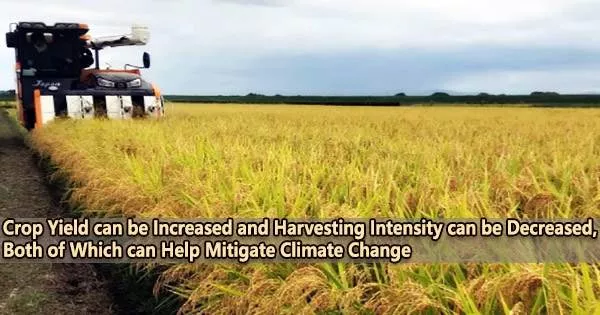Researchers from the University of Turku in Finland have found that by making important changes to agricultural management, fodder pasture output, plant resilience, and carbon sequestration may all be improved. The findings offer a road map for lowering pesticide burdens in soils and the initial steps toward enhancing climate change mitigation while enhancing agricultural output in grasslands.
An important factor in determining plant quality is the soil’s resilience to climate extremes and resistance to diseases and insect pests.
With the aim of maximizing crop production, agricultural intensification has been brought about by the rising global population’s rising food needs, technical development, and novel synthetic agrochemicals.
“However, in recent decades, we have observed both a reduction in plant resilience and crop yields and the degradation of soil quality. This has resulted in an exponential need for chemical fertilizers and pesticides,” says Docent Benjamin Fuchs from the Biodiversity Unit of the University of Turku, Finland.
“Only in recent years, we have started to realize that intensive agriculture and agrochemical pollution in fact contribute to a reversal of the intended purpose. Soils are polluted with pesticides and at the same time, extreme weather events erode soil nutrients,” Dr. Fuchs continues.
Intensive harvesting and pesticide residues in soil limit root growth
Finding realistic and long-lasting techniques to increase plant toughness and crop production while reducing carbon (CO2) emissions brought on by human activities by boosting soil carbon absorption was a major problem in the research.
Only in recent years, we have started to realize that intensive agriculture and agrochemical pollution in fact contribute to a reversal of the intended purpose. Soils are polluted with pesticides and at the same time, extreme weather events erode soil nutrients.
Dr. Docent Benjamin Fuchs
The researchers conducted two independent experiments at the University of Turku’s research facilities at the Ruissalo Botanical Gardens in Turku, Finland. The research team demonstrated in trials conducted in greenhouses and public gardens that pastures are significantly impacted by the intensity of mowing.
The overall production of the pasture increased and the plants grew deeper roots by reducing the intensity of the mowing and cutting the plant higher. This suggests that more atmospheric carbon is being sequestered underground.
What was surprising, Fuchs emphasizes, is that the researchers found a detrimental effect of herbicide residues in soil on root growth regardless of the intensity of the yield harvest.
“This demonstrates a tremendous limitation to the potential carbon binding and storage belowground when soils are polluted by pesticides. Considering the vast amount of pesticides applied to agricultural fields yearly, we can conclude that the impact on soil quality is a major driver of limited root growth, carbon sequestration, and consequently plant resilience and productivity,” Dr. Fuchs says.
To translate their findings into a field scale, the authors suggest additional field investigations. Both researches reaches the same conclusion: Lowering pesticide use will promote root growth and increase plant resilience, hence reducing climate change by optimizing carbon absorption and storage in soil.
Cultivated grasslands are utilized all over the world for growing fodder that is converted into hay and silage, as well as for grazing pasture. They offer significant potential for reducing climate change through carbon storage and cover a significant portion of the world’s agricultural area. As the plants develop, they absorb carbon dioxide, and some of this atmospheric carbon is then bound in the soil.
“Consequently, understanding how pesticide pollution in soil and intensive management to limit plant productivity is the key to optimizing intensive grassland-based agriculture in a sustainable and climate-friendly way,” Fuchs concludes.





